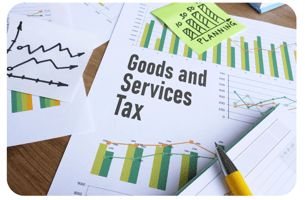If you do not have children and it is your first tax return in Canada, to apply for the GST/HST...
Guide to Tax Residency in Canada
Navigating tax residency in Canada can be complex, but understanding the rules and regulations is essential to ensure compliance with the Canada Revenue Agency (CRA). This guide will help you determine your tax residency status and navigate the associated responsibilities.

1. Understanding Tax Residency
Tax Residency in Canada is based on residential ties for an Ordinary Resident or if you spend more than 183 days or work for the Canadian government overseas for a Deemed Resident. The residential ties considered by CRA are:
Primary Ties to Canada:
- Permanent Home: Owning or leasing a home in Canada.
- Spouse or Common-law Partner: Having a spouse or common-law partner in Canada.
- Dependants: Having dependants in Canada.
Secondary Ties to Canada:
- Personal property in Canada (car, furniture, etc.)
- Social ties (memberships in Canadian clubs, churches, etc.)
- Economic ties (Canadian bank accounts, credit cards, investments, etc.)
- Canadian driver's license
- Canadian passport
- Health insurance with a Canadian province or territory
2. Types of Residents
1. Resident:
- Ordinary Resident: You live in Canada throughout the year.
- Deemed Resident: You live outside of Canada during the tax year but are deemed to be a resident for tax purposes. This includes government employees, members of the Canadian Forces, and their dependants.
- 183 Day Rule: You can also be considered a Deemed Resident if you spend more than 183 days in Canada during the tax year even if you don't have residential ties
2. Non-Resident:
- You live outside of Canada throughout the year and do not have significant residential ties to Canada.
3. Deemed Non-Resident:
- You are considered a resident of another country with which Canada has a tax treaty, and you would be regarded as a resident of that country for purposes of the tax treaty.
3. Determining Residency Status
Significant Residential Ties:
- If you maintain significant residential ties in Canada, you are considered a resident.
Secondary Ties and Duration:
- Secondary ties can also influence residency status, especially when primary ties are weak.
- The duration of time spent in Canada matters. Generally, if you stay in Canada for 183 days or more in a calendar year, you may be deemed a resident.
4. Filing Requirements
Residents:
- Must report worldwide income.
- Eligible for various deductions and credits.
Non-Residents:
- Must report income earned from Canadian sources.
- Subject to withholding taxes on certain types of income (e.g., dividends, rental income).
Deemed Residents:
- Report worldwide income.
- Eligible for deductions and credits similar to residents.
Deemed Non-Residents:
- Report only income from Canadian sources, similar to non-residents.
5. Changing Residency Status
Leaving Canada:
- Inform the CRA about your departure date.
- File a departure return (also known as an emigrant return).
- Report worldwide income up to the date of departure.
- Disclose the fair market value of properties owned at the time of departure.
Returning to Canada:
- Re-establish significant residential ties in Canada.
- Inform the CRA of your return.
- File a tax return for the year you return, reporting worldwide income from the date of return.
6. Tax Treaties
- Canada has tax treaties with various countries to avoid double taxation and prevent tax evasion.
- These treaties can affect your residency status and tax obligations.
- Review the relevant tax treaty if you have ties to another country.
7. Seeking Professional Help
Navigating tax residency can be complex. Consulting with a tax professional or accountant who specializes in Canadian tax law can help ensure compliance and optimize your tax situation. You can book a free call with us for a consultation on a more specific case.
8. Contacting the CRA
If you are uncertain about your residency status or have specific questions, you can also contact the CRA directly for guidance.
CRA Contact Information:
- Website: CRA Website
- Phone: 1-800-959-8281 (Canada and U.S.)
By understanding the rules and responsibilities associated with Canadian tax residency, you can effectively manage your tax obligations and ensure compliance with the CRA.
-1.png?width=450&height=150&name=Logo-Square%20(500%20x%20200%20px)-1.png)


